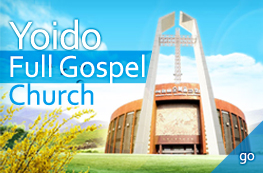On the occasion of the 100th founding anniversary of the Provisional Government of the Republic of Korea, an event was held to look back at the role of Christianity in that government.
SaRang Church (Rev. Oh Jung-hyun) held an academic conference (photo) titled “The Korean Provisional Government and Christianity,” on September 5 at the National Palace Museum of Korea in Jongno-gu, Seoul.
Following the outbreak of the March First Movement in 1919, the Korean Provisional Government underwent a process of establishment and consolidation. The Independence Movement had spread throughout the country, and its leaders, feeling the need for an organ that could generalize the movement, set up provisional governments in Hanseong (Seoul), Yeonhaeju and Shanghai. In August 1920, the three governments were consolidated in Shanghai, thereby launching the “Provisional Government of the Republic of Korea.”
Conference keynote lecturer Oh Il-hwan, a former director of the VHS Education and Research Institute, shared his evaluation that Christian values played a decisive role in guiding the consolidation of the Provisional Government. “Ahn Chang-ho, Rhee Syngman and Lee Dong-hwi were all Christians,” he said. “It was as difficult to achieve a consensus of opinion as it was to unify the three governments, but by laying aside their personal greed, according to Biblical teachings, they successfully united.”
At the conference it was also clarified that the majority of figures in the united Provisional Government were Christians. According to the Korea China Foundation, which supervised the conference, there were six Christians among the nine leaders of government following its consolidation. Starting with top leaders Lee Dong-hwi as prime minister and Rhee Syngman in charge as president, Lee Dong-hwi, Kim Kyu-shik and other key Independence Movement activists held significant positions.
Outside the government, these figures congregated around the church. Former Institute Director Oh noted, “The Shanghai Korean Church, established in 1914, played a dual role; as a place where these persons could meet often, and as a rallying point for Shanghai Christians, who were fewer in number there than in Yeonhaeju.”
Other presentations followed. Yonsei University Prof. Kim Myeong-seop analyzed the reason for the Provisional Government’s location in the former French concession of Shanghai, saying that it was due to the international situation at the time, including the outbreak of World War I. Soongsil University Prof. Kim Myeong-bae described the role played by “Christian nationalists” in the process of the March First Movement and the establishment of the Provisional Government. Honam Theological University and Seminary Prof. Choi Sang-do and Seoul Theological University Prof. Park Myeong-su reilluminated the roles of Christian Independence Movement activists in Korea and the United States.
The opinion was also expressed that the Christian churches should be in the vanguard for peace and reunification. Peace Corea Representative Heo Mun-yeong declared, “Just as Christianity played a major role in unifying and operating the Provisional Government, the Korean church today should act with resolution for the advancement of peace and reunification.”
Article and photo by reporter Hwang Yuntae (truly@kmib.co.kr), with Marion Kim (marionkkim@icloud.com)
Original Article in Korean:
대한민국임시정부와 기독교의 관계는?: 대한민국임시정부 수립 100주년 앞두고 열린 사랑의교회 주최 학술대회 열려
What Was the Relationship Between the Korean Provisional Government and Christianity?
2018-09-10 17:08



